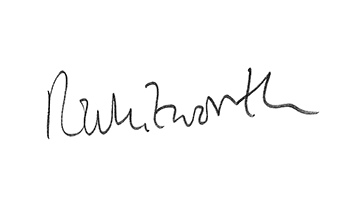“The challenge is for scientists to be humble and acknowledge that in this day and age facts will not win the day.” So says Michael Osterholm, Director of the University of Minnesota’s Center for Infectious Disease Research. A sobering thought. What surprised me most about the quote – taken from an article on the inevitable (and also sobering) outcome of “anti-vaxxer” campaigning (1) – was that it didn’t surprise me at all. Back in April, I was pleased to read, “How the March for Science Finally Found Its Voice” in Washington D.C. (2) – and in over 600 other cities around the world. With witty signs aplenty (do an Internet image search – “march for science signs” – to cheer yourself up with your morning beverage of choice), science fans young and old took to the streets to fight against “alternative facts” on Earth Day. And though humor and puns won the hour, the message was serious. “I can’t believe I’m marching for facts,” wrote one sign-maker.
“Science is not a liberal conspiracy,” wrote another. So we’ve finally reached the point where science must be defended. Political spin, “fake news” on social media, and perhaps more than a pinch of science illiteracy have all combined to create white noise capable of drowning out the purest sounds of science. I don’t want to dwell on the potential ramifications for humanity here – I’ll save that for a lengthy book that I’ll never write. I have a couple of other concerns that must be addressed, if science is to find its voice and regain power.
A year ago, I wrote “The Dogmatic Scientist” (3), which called for care in separating science from scientism – lest we become evangelist preachers on soapboxes in town squares (the March for Science had some of that vibe...). What we need is clear communication of current knowledge or thinking rather than hyperbole that attracts attention (but also, worryingly at times, funding). And, as my colleague Charlotte Barker noted in her editorial last month (4), transparency should not be limited to exchanges with the general public – “clarity over complexity” is essential when sharing our work with colleagues in other disciplines (and other parts of the world). Finally, as I read a sign that shouted, “What do we want? Evidence based science. When do we want it? After peer review,” I was reminded of Ira Krull’s own March Against Irreproducibility in the literature (5). Ira concluded, “Don’t be afraid to stand up and decry research or publications that fail to meet even the basic requirements for reproducibility. The whole of science is at stake.” And he’s right. But as analytical scientists, you surely don’t need me to tell you that.
Rich Whitworth
Content Director

References
- M Molteni, “Anti-vaxxers brought their war to Minnesota – then came measles”, (2017). Available at: http://bit.ly/2qllKMp. Accessed May 9, 2017. E Yong, “How the March for Science finally found its voice”, (2017). Available at: http:// theatln.tc/2p6mIsx. Accessed May 9, 2017. R Whitworth, “The dogmatic scientist”, The Analytical Scientist, 0516, 9 (2016). Available at: http://bit.ly/2pZfpFl. C Barker, “Communicating or confusing?”, The Analytical Scientist, 0417, 9 (2017). Available at: http://bit.ly/2pZ2xiF. I Krull, “Care to Repeat That?” The Analytical Scientist, 0217, 32–35 (2017). Available at: http://bit.ly/2ndqBK8.




